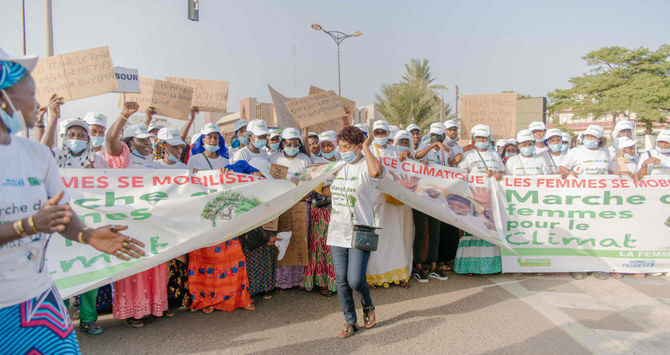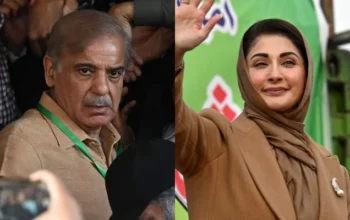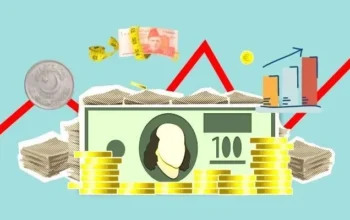For more than a year, the upcoming climate change negotiations, called the UN Climate Change Conference (COP26), that gets underway in Glasgow next week, has been touted as the last chance to save humanity as well as Planet Earth. A number of international reports, done by dozens of prestigious institutions and scientists, have been raising alarms over the torrid pace at which the Earth is racing towards total annihilation due to human-induced climate change.
From the intergovernmental panel on climate change, a global body of reputed scientists mandated by the UN to study the phenomenon to a whole lot of NGOs, all have warned the world and business leaders that we have let too much time slip by without acting in a concrete manner on emissions control. As recently as August, the Intergovernmental Panel on Climate Change (IPCC) released its latest report, warning that it was code red for all of humanity. It had gone on to say that it was too late to arrest the rise in global temperatures to below the stated target of 1.5 degrees Celsius from the pre-industrial era, as envisaged in the Paris Agreement of 2015.
Not only that, the IPCC further said that with the current pace of emission reductions, the world was almost certainly headed to a catastrophic scenario of around 3 degrees Celsius rise in temperatures. As if to underline the warning (not that any was needed), the world has been hit by a series of ecological catastrophes this year and more so over the past three months. The recent catastrophes highlight the fact that climate change has now become a self-feeding unstoppable monster that will only become ever more omnipotent and omnipresent.
Even though the warnings could hardly ever be clearer or harsher about the failure of global business and political leaders in curbing emissions and the onset of a series of climatic disasters as a direct result of human activity over the past several decades, the governments, as well as companies, have so far paid only lip service to the urgent task of emissions control.
Ever since the IPCC was constituted in 1988, the body has been clear and direct about putting the blame for climate change on uncontrolled greenhouse gas emissions caused by various human activities and it has been issuing one stern warning after another about the need to curb these urgently. Yet, almost three and a half decades later, besides making lofty promises at each successive multilateral meeting or the series of COPs, the global leaders have singularly and spectacularly failed each time. Which has led to the current situation where, in many ways, it is impossible to slow down climate change even with dramatic drops in emissions.
In the days leading up to each meeting of the COP, it is evident to anyone, except the government and business leaders, that the positions of various countries and communities as well as business are at cross purposes and there are far too many conflicts of interests for a meeting to lead to any concrete and achievable outcomes. Yet, the leaders plunge headlong into each meeting promising to find the mysterious key that would unlock the climate inaction and open the gates to unprecedented cooperation and a drop in emissions.
Though it is said to be the last chance to save the Earth, it is best to keep low expectations for the 2021 UN Climate Change Conference in Glasgow and time for citizens to take the matter into their own hands.
Ranvir S. Nayar
Days before the COP21 meeting in Paris was to open on November 30, 2015, it was clear that no agreement was possible as several questions deeply divided the nations, especially among developed and developing nations. For instance, the developing nations were trying to nail the rich nations to their long-pending and much-delayed commitment of paying $100 billion each year in climate assistance to the poor nations as the responsibility for the emissions was primarily theirs and it was the poor nations that were mainly paying the price for it. Yet, there was no sign of any agreement on this.
Similarly, the nations’ positions on their emission cuts remained too far apart to have any real agreement possible in the fortnight-long negotiations in Paris. Yet, the leaders ended the meeting with the famous or rather infamous Paris Agreement that could not even agree on a fixed target for keeping the rise in temperatures as it set 1.5 degrees Celsius rise as the desirable target but set sights on anywhere around 2 degrees Celsius about the pre-industrial era. There was no sign of any concrete outcome on anything — emissions curbs, climate financing, or any other action that the countries and companies could be held accountable for.
Yet the leaders — political and business — patted themselves on the back and praised the Paris Agreement as a ground-breaking pact that would save the world. Six years later, as we head into COP26 at Glasgow this time, the world and negotiators face the same questions as those in the days before Paris: climate finance, meeting commitments and setting more aggressive cuts for the developed nations as they hold the primary responsibility for the climate change.
So, it is best that the world already dramatically toned down its expectations from the meeting, as close to zero as possible. This can only lead to something positive. If indeed, the global leaders surprise everyone and themselves by reaching a real pact, all the better. But as is much more likely, if Glasgow also ends in yet another pact that is not even worth the paper it is signed on, then the citizens of the world need to realize that as they bear the consequences of the inaction of the leaders and the greed of the company bosses, it is time for them to initiate direct action.
Social media has already shown how consumers or any social or sectoral grouping of people can wield immense strength and can force offending governments or companies to change the course of actions. In climate change itself, the name and shame campaigns have proven to be effective, even if for the short term and so have campaigns by students as young as Sweden’s Greta Thunberg.
So, it is time that the citizens of the world began direct action campaigns to save their own local environment by identifying the offenders and then mount social, moral, and legal — but non-violent — campaigns to get them to change course.
In these campaigns, the citizens also need to introspect. For we, as consumers, too, bear a large responsibility for the current state of affairs and we need to sharply cut down our own intake and make a sharp turn to a society based on needs rather than desires. Only by curbing our own consumption — be it of water, electronic gadgets, fuel, food, or clothes and accessories that we can bring about a major change in the behavior of the companies and governments.
This is the only option that we have. The other option is to sit and watch the world lose the battle against climate change, right here in front of our eyes.
• Ranvir S. Nayar is managing editor of a Media Group.
Disclaimer: Views expressed by writers in this section are their own and do not necessarily reflect EMRA News’ point-of-view.



